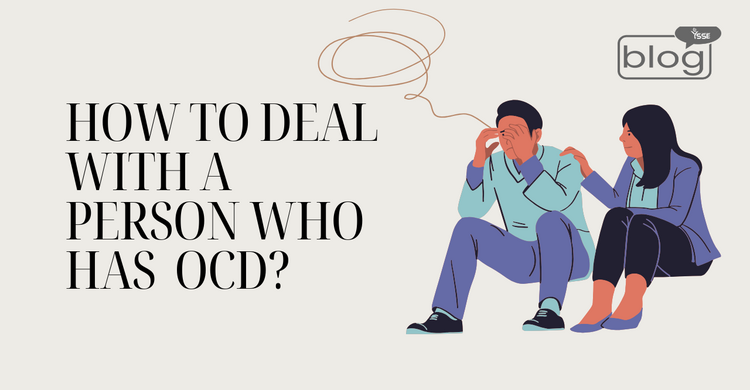About 1.1-1.8% of the global population has obsessive-compulsive disorder (OCD). We may meet a lot of people in our lifetime, who are suffering from OCD, but because of the lack of knowledge, we might often think that they are just behaving weirdly. But believe me, they are just suffering from one kind of mental and behavioral disorder.
If you understand what is called OCD and how to support someone with it can make a huge difference in mental illness. By knowing and understanding all these things you can help someone who is suffering from this mental illness, he or she can be your friend, partner, or family member and your proper support can help them feel understood and cope better.
Let’s dive into some practical tips step by step.
Step 1: Educate Yourself about OCD
Learning about OCD is the first step in supporting someone. OCD is a mental health condition that involves around two main symptoms: obsessions and compulsions.
- Obsessions: These are unwelcome, recurring urges, ideas, or visions that make people anxious and distressed. They may discuss pollution, injury, or perfectionism, among other subjects.
- Compulsions: These are repetitive behaviors or mental acts that individuals feel driven to perform to reduce anxiety or prevent negative outcomes. Common compulsions include excessive cleaning, checking, counting, or ordering .a
OCD can sometimes be assumed to be just about being “extra clean” or “super organized”, however, is not a personality condition that people can ignore or “snap out of it” Their mental health is greatly impacted by this disease, which often ends in emotions of frustration or shame.
Step 2: Encourage treatment but be patient
Cognitive behavioral therapy (CBT) and sometimes medication are helpful ways to treat OCD.
You could possibly gently urge your loved one to see a therapist if they haven’t begun therapy yet. Saying something like, “If you want to consult with any therapist, I can help you whenever you want,” would be an appropriate gesture. Respect their limits while showing interest in their success if they are currently receiving therapy. Patience is essential because therapy is a lengthy process.
Step 3: Use kind words and avoid criticizing
If you ever felt like you don’t know what to say? It’s normal! Just remember even a single word of kindness can help that person. Avoid saying things like, “Just stop worrying” or “This doesn’t make any sense.” These can make someone with OCD feel embarrassed or misunderstood. Instead, try supportive language like, “I’m here for you.”
Avoid saying things like “Just stop worrying” or “This doesn’t make sense.” These comments can make someone with OCD feel embarrassed or misunderstood, so always try supportive language with them.
Step 4: Celebrate their progress, no matter how small
Every small win can be counted as a single step in the long journey of achieving the ultimate goal, so here every step is important. Small steps forward are worth celebrating to cheer up those OCD-challenged people. If they manage to avoid a compulsion or face a fear, let them know you’re proud of them. Even saying, “I see how hard you’re working on this, I am so proud of you, let’s calibrate this ” can be a big boost for them.
By this positive encouragement, they feel stronger and more confident in managing their OCD.
Step 5: Encourage a healthy routine and self-care
Balance and a healthy routine can help those people who are suffering from OCD problems. We should encourage them for regular exercise, healthy eating, and good sleep hygiene because all of this is connected to mental health.
You might also suggest activities like yoga or any other creative hobbies that will reduce stress and increase relaxation.
Step 6: Don’t always help
People with OCD may sometimes ask you to help with their compulsions like checking something again and again or washing something in a certain way multiple times. In basic thought, it might seem like a small help but this can actually reinforce their OCD behaviors. Instead, gently remind them you’ve already done what they asked.
By not always agreeing with their compulsion, you help them to learn to manage their actions in a healthier way.
It needs kindness, understanding, and patience to support someone with OCD. You may significantly influence their journey by being more knowledgeable about the condition, exercising empathy, and establishing appropriate limits. Keep in mind that even modest gestures of kindness and support might make them feel less isolated and more in tune.
To read more blogs like this click here.
Writer
Shah Mohammad Fazle Elahi
Intern, Content Writing Department
YSSE.

